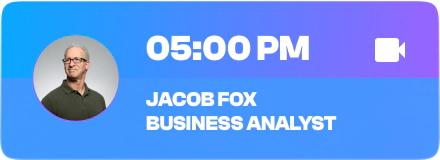It’s not enough to create high-quality content and place it on your website. The major goal is to generate leads and convert them into sales. Fighting for your target audience’s attention is tough as competitors never sleep.
This ultimate guide on lead generation presents clear steps to take to develop a viable lead generation strategy. Get yourself comfortable as we’re starting our incredible journey to the world of lead generation.
Get to Know Your Customers
To attract the right leads, you should create appealing content. However, creating a piece of content that would attract more prospects is impossible without knowing your target audience. Collect as much information about your target customers and learn their interests.
Use data from analytical tools or statistical sources. This will help make your customer profile complete. Facebook and Google provide analytical tools that can be used for this purpose.
Create Audience-Specific Content
The choice of the type of content is crucial for the purpose of lead generation. Content may serve different purposes: raising awareness, evoking interest, building preference or converting prospects into customers. Identify your primary goal and start acting. It’s better to start with generating traffic and then switch to lead generation. The following tools are the best website traffic boosters:
- blog posts;
- photos;
- video content;
- infographics;
- free e-books;
- podcasts.
The next step is lead generation. At this stage, you should create a so-called lead magnet – a valuable resource that you can offer your target audience in exchange for their personal information (emails). This works as follows: you offer a free e-book asking potential customers to fill in the subscription form where they are to leave their emails. The following tools may serve as lead magnets:
- free subscriptions to your service for 1 month;
- webinars;
- various useful links;
- free reports or statistics;
- free trials;
- free courses;
- challenges;
- coupons, etc.
The choice of content for lead generation is wide and you can find the one that suits your industry and purpose. Once you’re done, the time of choosing distribution channels is approaching.
Identify Marketing Channels
At this stage, you’re starting to form your content plan. Now you have to choose from multiple content distribution channels to reach the goals set in the marketing plan. You can use either organic or paid channels. Organic (free) distribution channels are the perfect content distribution tools for start-ups. Net space offers a great variety of free distribution channels, but you should use those where your target audience hangs out. Here are some channels to pay attention to:
- YouTube
- LinkedIn, etc.
Once your business gains pace by using free distribution channels, you can switch to paid channels. They require more costs, but you can generate greater traffic in the short run at the same time. Examples of paid channels:
- ads placed on social media;
- ads placed on internet platforms;
- Google ads;
- banners;
- recommended stories.
Among all paid distribution channels, Facebook and Google ads are highly recommended. Other social media ads are also powerful channels depending on the platforms used by your target audience.
Make a Content Plan
This step is related to the consolidation of all content components and the development of a cohesive plan of further action. At this stage, make it clear who and when publishes content, and who creates and promotes content. By creating a schedule for posting content, you can track the number of leads. There are many free tools like the OptinMonster plugin for monitoring content effectiveness. Once the content plan is complete, it’s time to create a lead magnet.
Offer Solutions to Customer Problems
The role of the lead magnet is to attract prospects. Therefore, it should be absolutely attractive to your target audience. To generate leads, the magnet should have certain characteristics:
- effectively address customer problems;
- promise one achievement in the short run;
- be specific;
- be concise;
- present customer value;
- be immediately accessible;
- demonstrate expertise.
Basically, your lead magnet should present value to customers and be accessible in one click. Nothing works better than this as your audience expects that you effectively address their problem. Remember that 70% of website visitors never return once they leave it. The competition is harsh. So, take your time to think well about how to create an effective lead magnet and attract website visitors.
Create Highly Convertible Content
Blog posts are an essential part of your content marketing strategy. We sketch several characteristics of highly converting blog posts to make your task easier:
- create an engaging headline (hook);
- long reads are ranked higher in Google;
- offer useful content;
- use visualization to make content more interesting;
- use keywords;
- link your blog post to high-quality resources;
- add links to related content.
When high-quality blog posts are complete, you need to optimize them to generate leads.
Optimization Matters
One of the most effective approaches to your blog optimization is to use opt-in forms. The form can appear on the sidebar or popup when an attempt to leave the website is indicated. You may also use a slide-in form to promote long-form content. By using opt-in forms you can easily monitor which blog posts generate the greatest number of leads. Use conversion analytics tools to track the process of generating leads.
If you plan to increase your conversions, you need a feasible content marketing strategy. Here we listed the main steps to generating leads and increasing conversions. Follow these to take your business to the next level.




